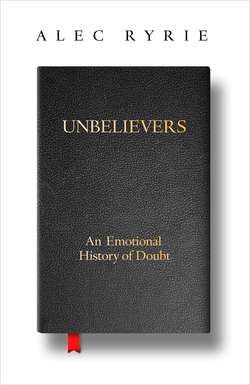Читать книгу Unbelievers: An Emotional History of Doubt - Alec Ryrie - Страница 13
2 The Reformation and the Battle for Credulity
Оглавление‘“I dare say you haven’t had much practice,” said the Queen. “When I was your age, I always did it for half an hour a day. Why, sometimes I’ve believed as many as six impossible things before breakfast.”’
Lewis Carroll, Through the Looking Glass
‘The impossible often has a kind of integrity to it which the merely improbable lacks.’
Douglas Adams, The Long Dark Tea-Time of the Soul
There is a well-established view that the credit, or blame, for modern unbelief lies with the Protestant Reformation, a view most recently laid out in Brad Gregory’s 2012 book The Unintended Reformation. The argument goes something like this. Martin Luther’s defiance of the pope from 1517 onwards ended up shattering Western Christendom into rival parties, each of which regarded the others’ errors as intolerable. As they dug their trenches and pounded each other with polemical and then with literal artillery, they tore up the religious landscape that they were fighting over until it could no longer be recognised. With all sides condemning each other’s false beliefs, it was hard to prevent civilians caught in the crossfire from reaching the conclusion none of the combatants wanted: what if they are all wrong? As battles subsided into exhausted ceasefires, armed truces and frozen conflicts, ordinary people and their governments began systematically to evade those conflicts and the terrible destruction they could cause by confining ‘religion’ to a private sphere and creating a new ‘secular’ public space. People who could not agree about religion could at least work around it, and discovered that they did not particularly miss it. And so religion was confined to quarters, like a once-formidable relative sent to a nursing home: spoken of with respect, paid a ritual visit occasionally, its debts honoured, but not allowed out in public where it might cause distress or embarrassment. In truth – though it would be crass to say so out loud – it was simply kept ticking over until it died a natural death.[1]
It is a powerful story with a lot of truth in it. But the world it explains is not quite the world we have. It does not explain why European Christianity endured for so many centuries after the Reformation; nor why, in our own times, a religiously fractured society like the United States is so much less secular than relatively homogeneous ones like Norway or France. Above all, it mistakes the part that unbelief played in the Reformation itself. Unbelievers did not merely play supporting roles, as battlefield medics or architects of postwar reconstruction. Unbelief was a part of the action from the beginning, and its role in the conflict was decisive. It was not a by-product of the Reformation conflicts. It was a weapon in them.
